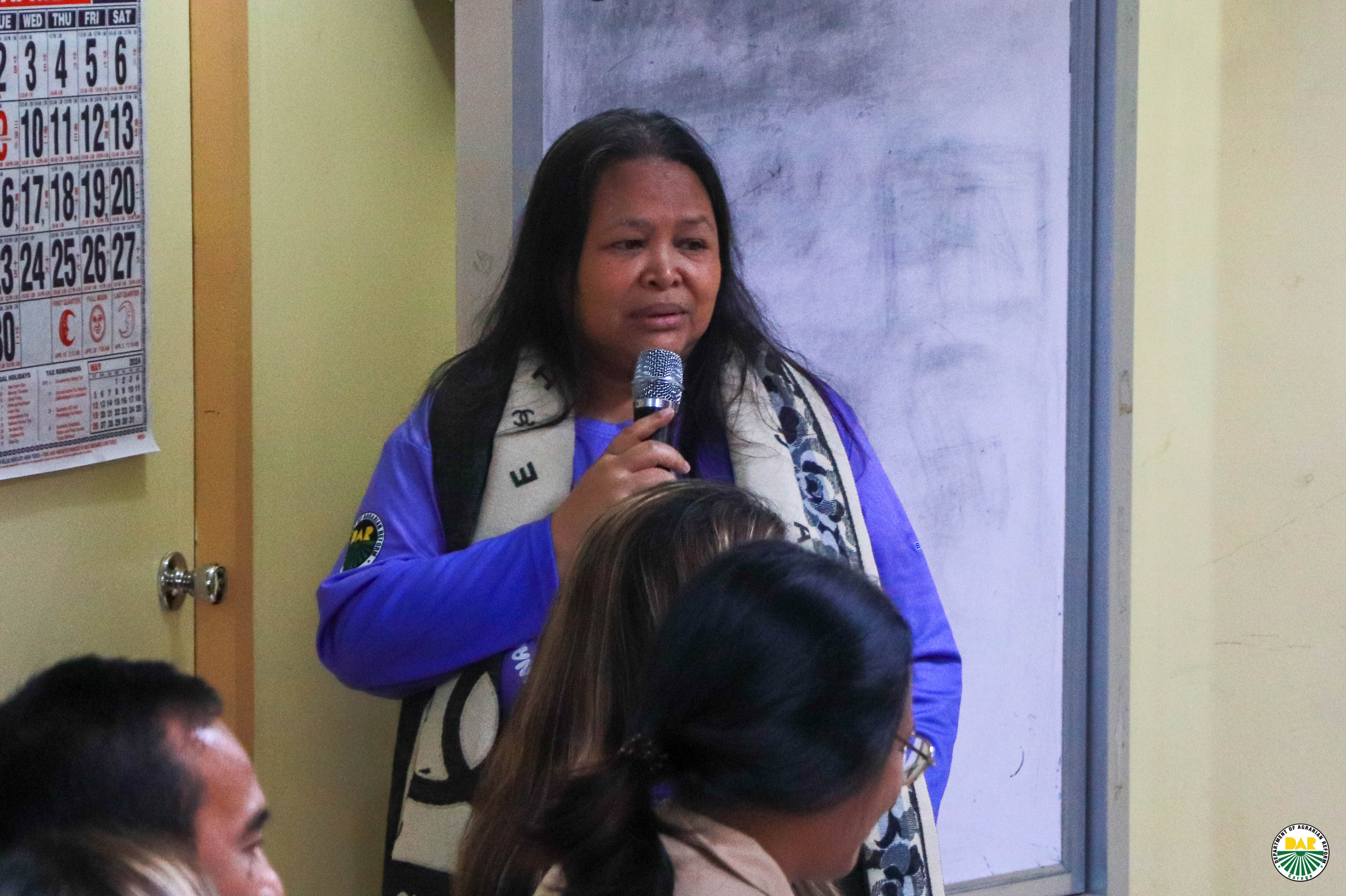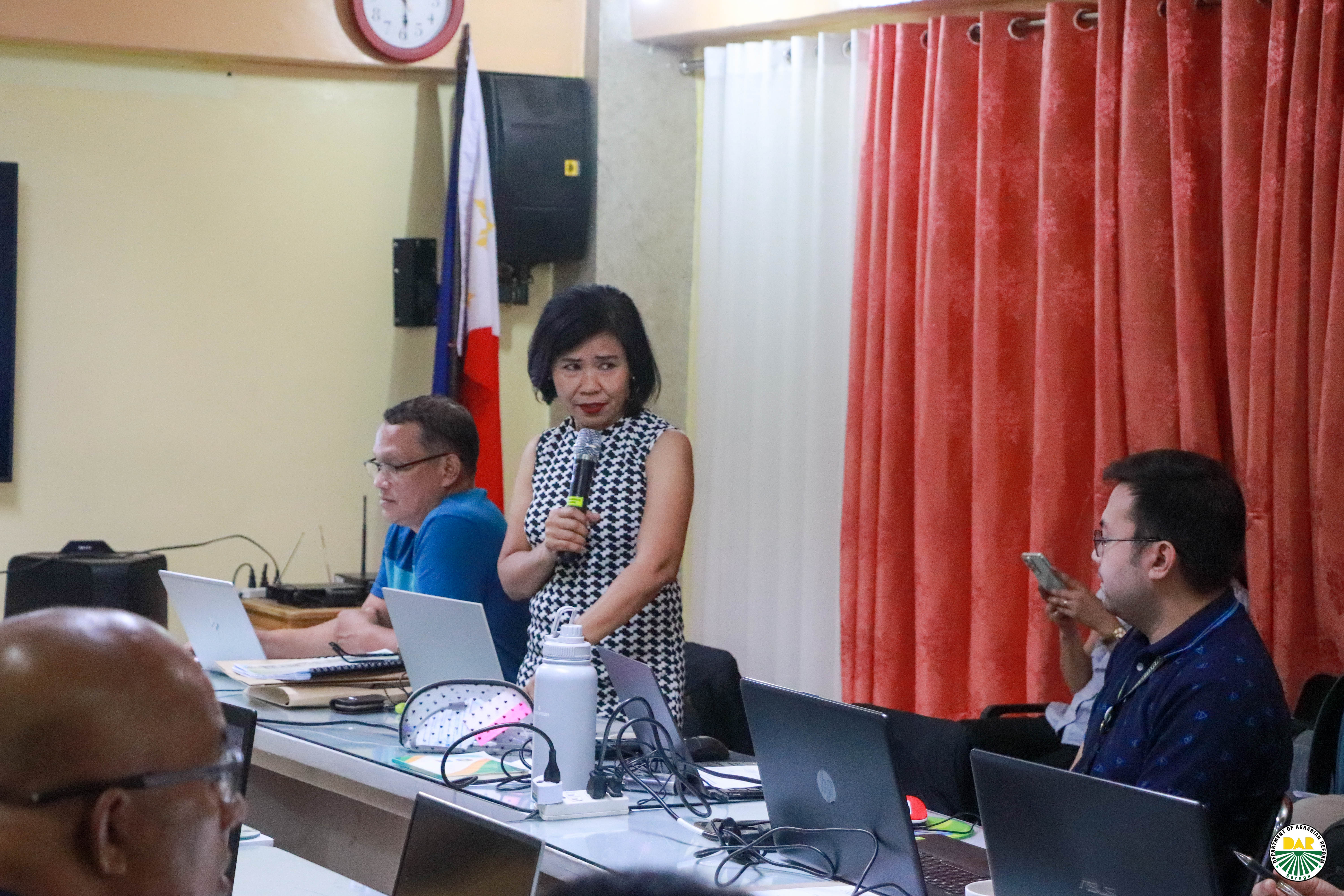DAR Caraga strengthens support services operationalization

The Support Services Division (SSD) of DAR Caraga, in an effort to further boost the rate of support services delivery to agrarian reform beneficiaries (ARBs) and to maximize the government's resources, met for 2-day learning session for the CY 2024 revised Agrarian Reform Beneficiaries' Development and Sustainability Program (ARBDSP) guidelines on April 18-19, 2024 at the Regional Office Conference Room, Butuan City.
As the third major program of DAR, the ARBDSP aims to provide support services to ARBs, smallholder farmers and their organizations to enable them to become more productive, enterprising and grow into vibrant players in community undertakings. Such services are provided individually to the beneficiaries or collectively through their organizations (ARBOs) and/or communities/areas (ARCs, ARC clusters, ARAs).
And with the ever-changing economic landscape of the Philippines and the needs of the Filipino farmers, DAR through its implementation of the ARBDSP has fashioned yearly amendments to its operational guidelines to streamline the focus and direction of the program nationwide.
Regional Director Atty. Merlita S. Capinpuyan, who graced the learning session expressed that it is high-time, more than ever, to further enhance the provision of technical capacity building and market linkages of Caraga ARBs to elevate their purchasing power and economic standing. And as one of the primary contributors of the food industry which is essential for daily nutrition, she said, "the farmers are who feed us everyday through their harvest. It is only right that we, as one with the goals of President Ferdinand R. Marcos, Jr. and Secretary Conrado M. Estrella III, stand firm in our efforts to collectively achieve holistic support to them [farmers], so we must give more than 100% of our efforts for this year and the upcoming ones."
This activity session included the participation of all key regional and provincial ARBDSP implementers of Caraga.
OIC-Chief Agrarian Reform Program Officer (CARPO) Hermegina M. Gabor presented said operational guidelines to the participants. These directives, as provided by Support Services Office Undersecretary, Rowena Niña O. Taduran, which was given earlier this year, are as follows:

- Prioritize the provision of farm productivity support to ARBs and ARB organizations (ARBOs) engaged in food production in ARCs with minimal intervention;
- Intensify adopting the value chain approach as a strategy for sustained marketing of ARBOs participating in government feeding programs, SM Sunday market, and other appropriate markets;
- Facilitate registration of ARBOs with business operations to either the Cooperative Development Authority (CDA) or Securities Exchange Commission (SEC), and Philippine Government Electronic Procurement System (PHILGEPS);
- Strengthen collaboration with the Local Government Units (LGUs) through its designated Cooperative Development Officers/Specialists to fast-track registration of ARB cooperatives with the CDA;
- Intensify strategic partnerships with the Department of Agriculture (DA) and its attached agencies, Technical Education and Skills Development Authority (TESDA), National Irrigation Administration (NIA), Department of Public Works and Highways (DPWH), Department of Trade and Industry (DTI), Department of Science and Technology (DOST), Land Bank, Philippine Crop Insurance Corporation (PCIC), other government agencies, and LGUs including relevant financing institutions. Ensure integration of the development needs of the ARBs, ARBOs, and ARCs into their respective programs and projects;
- Facilitate the establishment of ARBO-managed demonstration farms to showcase the learnings acquired by the Farm Business School-engaged members for sustaining the project activities and as a potential Learning Site for Agriculture (LSA). One (1) site per region;
- Roll out the cascading, adoption, and administration of Capacity Development Tools (Scorecard and ARBO Sub-Lending Guidelines) to both ARBOs with loan availment and ARBOs in the pipeline and document the processes adopted under the Accessible Loans for Empowered, Resilient and Transform - Agrarian Reform Beneficiaries Organizations or ALERT ARBOs credit program;
- Prepare the ARBO-availers under ALERT ARBO’s graduation to regular lending windows of LBP and/or other financial institutions by conducting Enhanced Cooperative Accreditation Criteria (ECAC) and Risk Assessment Accreditation Criteria (RAAC) assessments, preferably on the ARBO-availers renewal of credit lines;
- On Agri-Insurance Program with PCIC: Facilitate the training, accreditation, and forging of Memoranda of Agreements (MOAs) with PCIC as underwriters for relatively big ARBOs, and for small ARBOs, ensure the enrollment and tracking of ARBs to agri insurance through the LGUs and other entity-accredited PCIC;
- Observe due diligence on the submission of Climate Resilient Farm Productivity Support (CRFPS) project proposals. All project proposals should be geo-mapped and subjected to the Climate Resilient Vulnerability Assessment tool (with identified exposure, sensitivity & adaptive capacity assessment indices);
- Complete procurement of FME/support facilities by the 2ⁿᵈ quarter of 2024 and distribute them to ARBOs within the 2ⁿᵈ quarter to the 3ʳᵈ quarter of 2024; &
- The deadline of submission for the list of conduit ARBOs and names of participating ARBs (sex-disaggregated) under Social Infrastructure Building (SIB), Enterprise Development and Economic Support (EDES), and CRFPS targets for CY 2024.
With these numerous guidelines, OIC-CARPO Gabor further emphasized the importance of each point as it is geared towards the farmers' ability to sustain and optimize the resources of the government afforded to them.
Another topic which was discussed in this engagement is the importance of monitoring and evaluation (M&E) which is a crucial monthly report required to effectively gauge the ARBDSP implementation.
And through this 2-day engaging interactive discussions, and hands-on activities, the participants have not only recalibrated their focus, but have also renewed their commitment.
